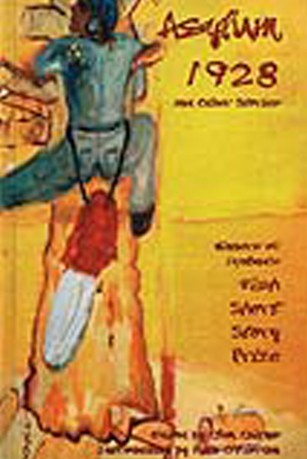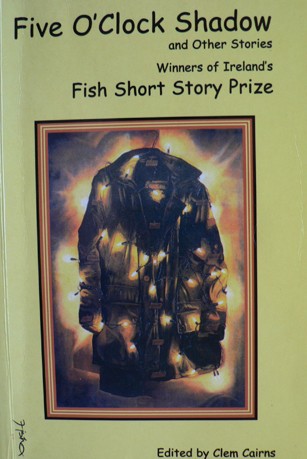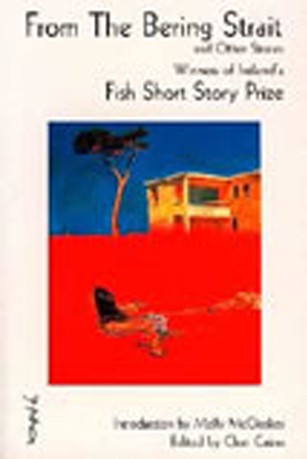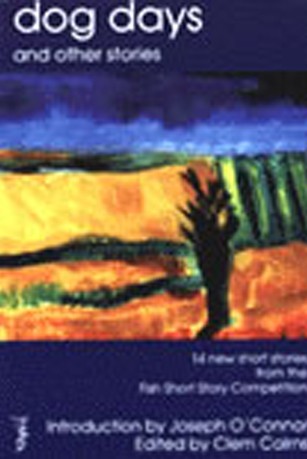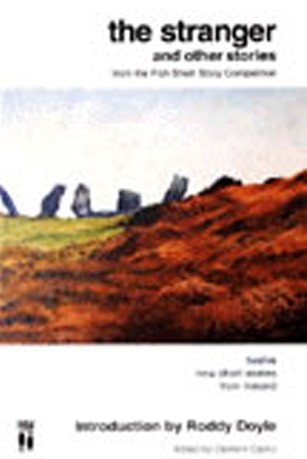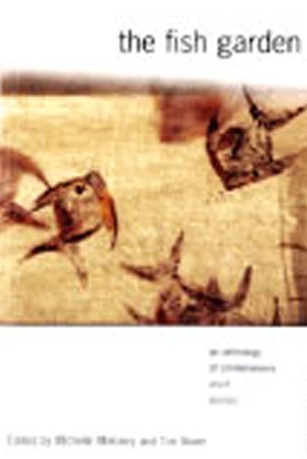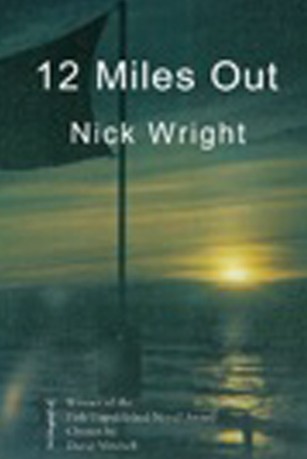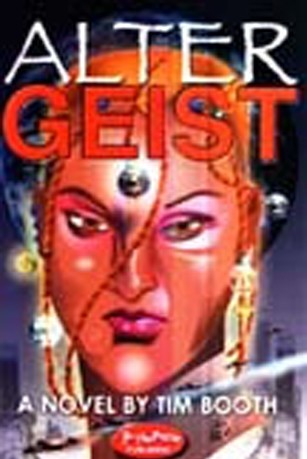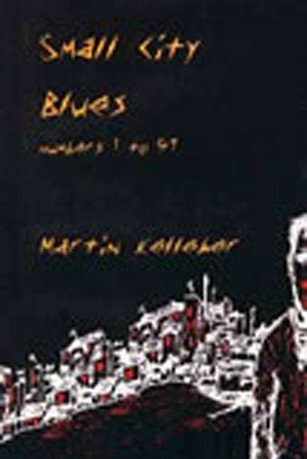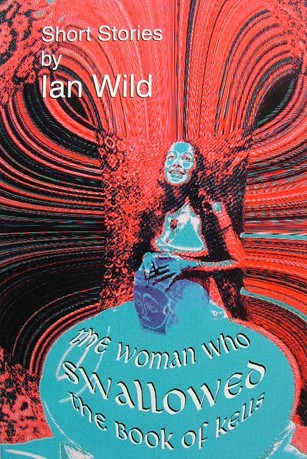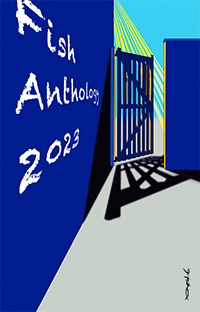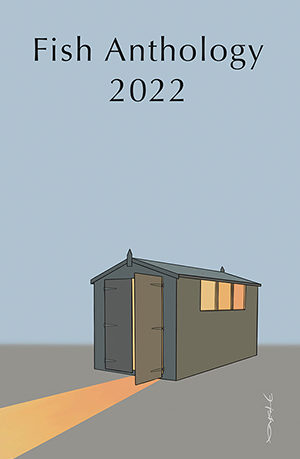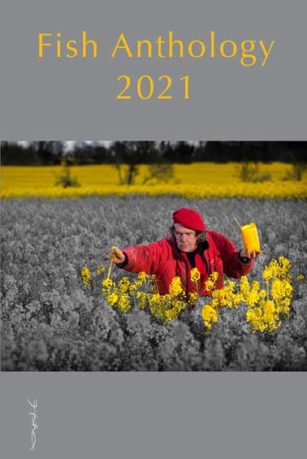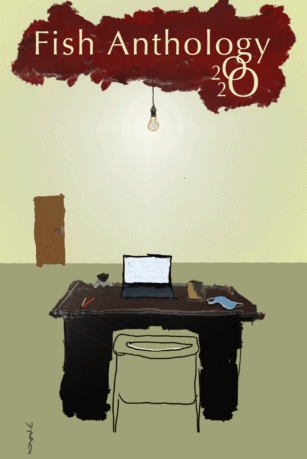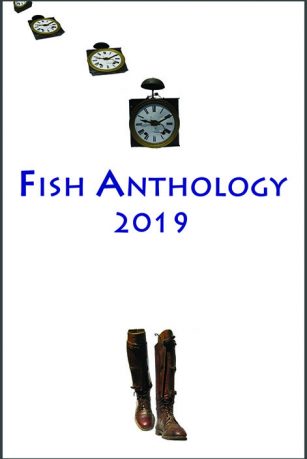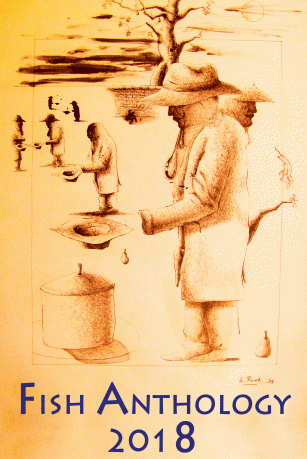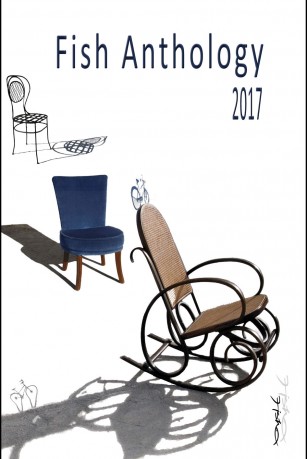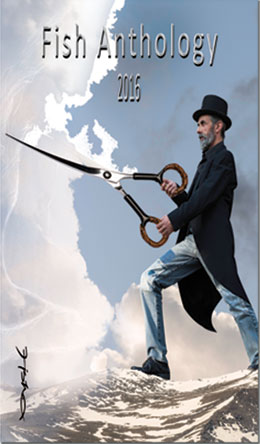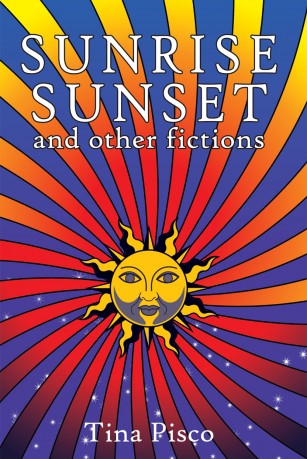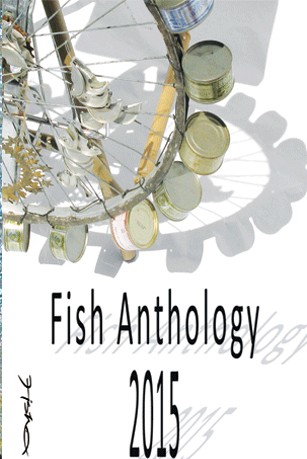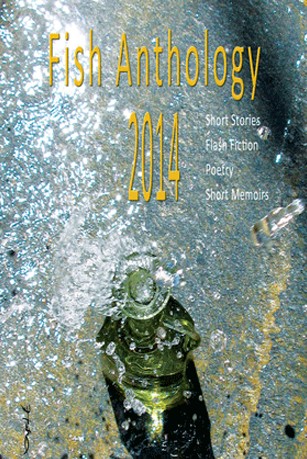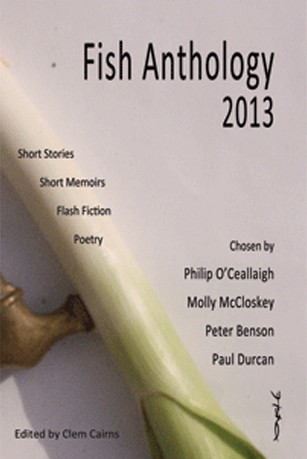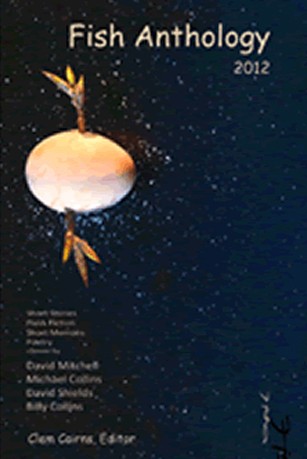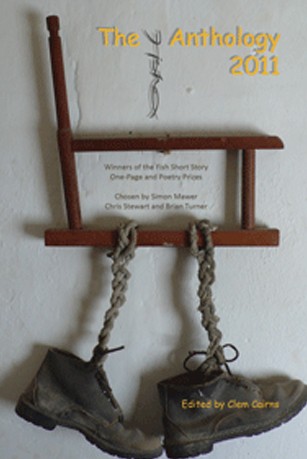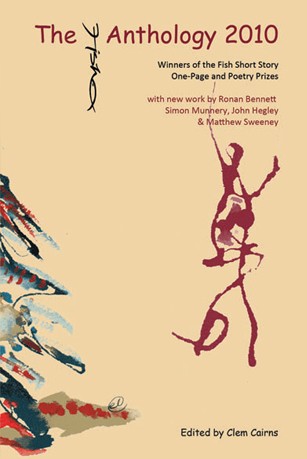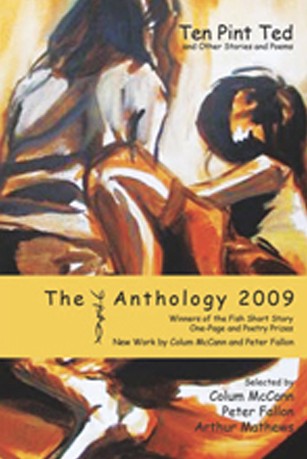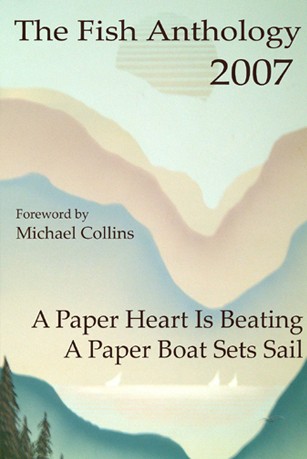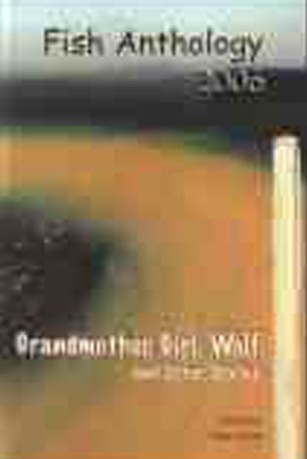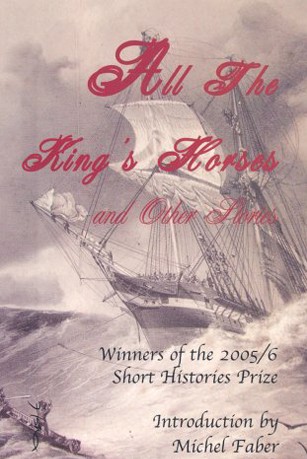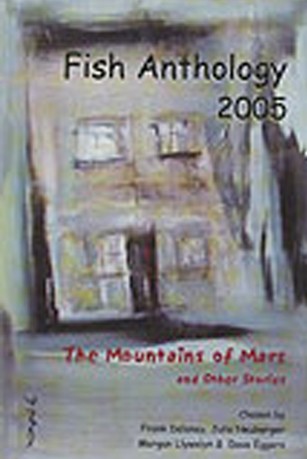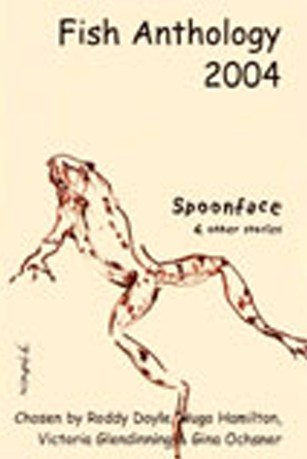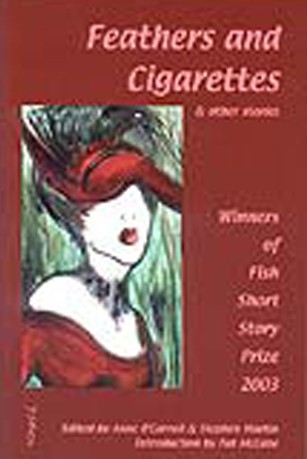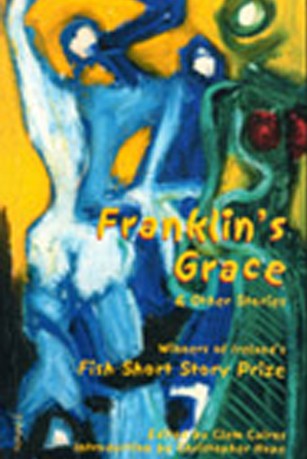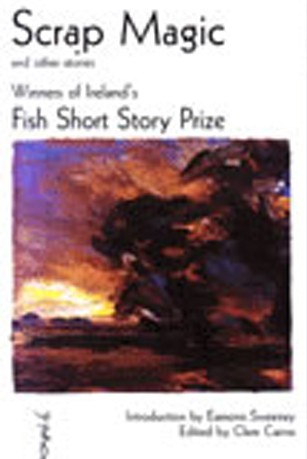
Scrap Magic
ISBN: 0-9523522-6-5
Introduction by Eamonn Sweeney
Most wrtiers have been subjects of the brown envelope. The poem, the short story, the novel is completed and then dispatched in the aforementioned container to take its chances in the world of magazines, competitions and publishers. You have done all you can for it, now it’s on its own. Now you wait, for months mainly although a period of a year or of infinate time is not unusual,for the virdict.
There were hundereds of entries for the Fish Publishing competition and the ones that appear in this book have journeyed from brown envelope to paperback publication. It goes without saying that there is an arbitary dimentions to competitions such as this. A different set of judges would have all probability chosen differently. Having said that competition success has to be regarded as a benchmark of some standard.
Look at the Booker Prize ceremony. One of the first things the successful novelist will dois point out that any one of his fellowshort listees could have won the prize. The winner will then usuallygive their theory of fiction or their views of the state of the world. At the back of it all, they do feel that being a winnerentitles them to do this. They feel that the prize is an award for superiority.
So, winning a prize is not all a matter of luck. If you look at winners of short story competitions, some names will constantly crop up. They have been chosen by different judges with very different temperaments. There is something about their writing that demands attention even though it arrives in the same dull envelope as everyone else´s.
Prizes such as the Fish Publishing Prize, the Francis MacManus Prize and The Hennessy Award can be used by writers on the verge of publication to messure their progress. If you are constantly on the winner’s rostrum you’re probably doing something right. And in the end this is why prizes serve such a useful function. Read the biography of any writer and you come across a dbilitating time in their life when they lost faith in their talent and did not trust their ability. Prizes are there to assure people who take their writting seriously that someone can see what they’re getting at. And if the Fish Publishing Prize encourages just one writer who has felt tempted to lose faith to keep going, then it has served its purpose.
The stories in this book generally fulfilled the originality criteria. There were many well written stories which did not make the cut. They did not possess the difference, the quirkiness the spark of the ones in this selection. The winners for this year gave the impression of following their own road and of tackling their own ideas in their own way. It is a valuable quality. They appealed to me because, although some of them were not the most polished or well-wrought, you could see the writers thinking constsantly of getting across their stories in the most interesting way. This makes the collection a varied one. Read it. I hope you’ll say to yourself like I did on many occassions,’That’s deadly. How did they think of that? I wouldn’t have thought of it.’
There could have only been one winner of the competition. I don’t know anything about Richard O’Reilly or how much writing he has done but I do know that he is a very talented writer. The man knows what it is all about. Scrap Magic is the tale of a charlatan exorcist who suddenly slips into the spirit world where he encouters a not particularly impressed ghost. So far so simple. But O’Reilly makes the story special by giving the ghost his own spirit world language which is funny and also completely consistant. You can only sympathise with a spectre when you know that in, ‘crismas eev 1774, i came charging down for the carol singing, riding blind drunk. theyd jussed finished hark the herald aynjels wen i ran mi hors strate into the wall and tuk a hedder thrue the frunt windoe. i was ded wen i hit the grownd and ive been heer ever sinse.’
Richard O’Reilly’s voice is funny and sophisticated and I hope we hear a lot more of it.
Ian Wild is crazed. I’m sorry but there is no other way to put it. Garcia’s Moustacheis just not the kind of story you read in most anthologies. The crazed tale of a low rent Bohemian and his misbehaving facial hair is very funny and like something from the outer limits of Monty Python crossed with Spike Milligan. And by the way we hear the heart-warming tale of Garcia’s father who, ‘had all his teeth knocked out by the Civil Guards in Seville. It saved him a lot of money, because they were all rotten. He wrote and thanked General Franco every week. I won’t wait for you. I must go and weep on my father’s grave.’
Fractal by Tim Booth is an example of how a writer’s originality of mind can create a memorable story. What starts as a pretty ordinary encounter in Florida becomes the tale of a surreal island where the dead stars of Tinseltown linger in the hope of adoration. And it’s beautifully written.
Samantha Howard shows the value of subtlety and of confidence in your own storytelling ability in A Special Seceret. The domestic backgrounds and trivia make the story seem on the surface to be trivial but an undercurrent of unease is skilfully evoked the whole way through until the quietly chilling conclusion. Like most pieces of writing, it look simple but it isn’t. Its main character, a mother at the end of her tether, stuck in mind for some time.
I mentioned the influence of Raymond Carver on the American short story. Well there is something of Raymond Carver in William Wall’s Etty Fitz an Jack Crow but it has been transformed completely by the writer. The first line, ‘Etty had tall hair that built up like a picture of the Empire State Building and stopped at a gleaming tortoiseshell comb,’ is pure perfection. And what Wall does is make a small Cork town into a place of great human drama where the time passes and dreams are broken as lives are changed by the arrival of an oil refinery. This is originality, taking a specitic spot which seems located off the map of literature and invoking its particular ghosts.
Shakespear Lives by John Moralee is a different story. It’s funny, prescient and also against-the-odds poignant in its detailing of the dramatic rise and fall of the Bard when he’s brought back from the dead by genetic engineering. Fittingly enough for a story set largely in Hollywood, it would make a great film.
All the stories in this book are worth reading. I enjoyed reading them and I’m grateful for Clem Cairns of Fish Publishing for giving me the chance to do so. Flannery O’Connor once said that ‘the short stort is one of the most natural and fundamental ways of human expression’. It is also one of the most difficult and poses a challenge to any writer. The writers in this anthology have met the challenge with some vigour.
Eamonn Sweeney
Cork, 1998


